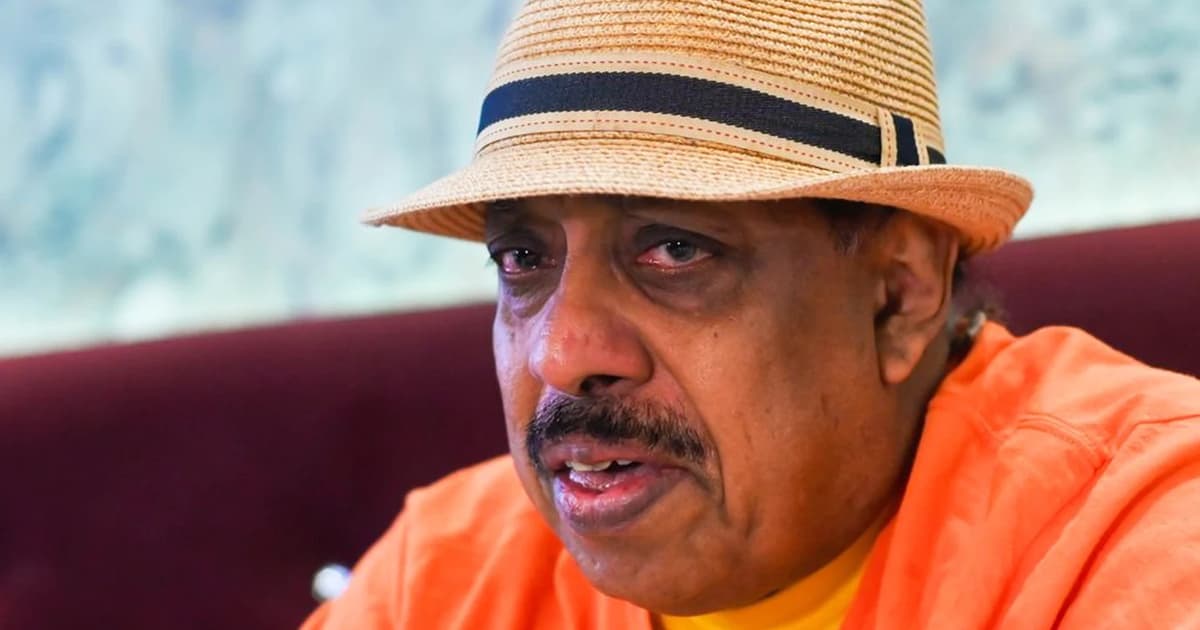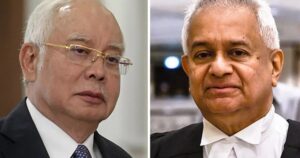
On Dec 1, 1997, Dominic Damian was driving when a radio show cut into his thoughts.
The voice was A Radha Krishnan, known as “The Black Stallion”. It was World Aids Day. He spoke about a baby girl.
She had been found under a bus in Alor Setar months earlier. Abandoned. Wrapped in a plastic shopping bag. Malnourished.
When the bus engine roared, people nearby heard a baby’s piercing cry. A policeman pulled her out to safety. She was about five months old.
Doctors later noticed scars on her head — a silent indication that she might have been physically abused before being dumped.
At Penang General Hospital, two families had already turned away from her. The reason was stark: she was HIV positive.
Music teachers Dominic, then 42, and his wife, Jacinta Samuel, from Jalan Ipoh in Kuala Lumpur, had little money.
But when they heard her story, they decided to take her.
They trusted the assurance that she would receive free medical treatment for life.

That promise gave them courage. They named her Amanda Mei Chu. Her Chinese name means “Pretty Pearl”.
A family built on choice
The Damians’ home was never just Amanda’s refuge. She was the third among five children adopted over the years.
Each had been abandoned. Each without a known ethnic background. They shared nothing but need. What they found was love.
Music became their language. The twin sisters, 31, teach piano, violin, flute, and voice; their brother, 24, teaches guitar. The youngest, 15, is focused on her schooling.
But Amanda, who came to them at 19 months, carried the heaviest burden.
Her parents never made distinctions. They invested in her care, schooling and happiness with the same devotion.
“Every child is a gift of life,” Damian says. “Each child must be given a chance. We as adults must protect them. We can’t do any less. We owe them.”
A baby no one would take
The Community AIDS Service Penang (CASP), which helped in Amanda’s placement, repeated the assurance that she would get lifelong treatment.
She would have a birth certificate. She would be cared for as a citizen. For years, the promise held.
Amanda grew up like any other child. She went to school. She laughed. She played.
Hospital Kuala Lumpur treated her without question. She carried a blue hospital card marked warganegara (citizen).
The family believed she was safe.
But at the end of 2017, the truth crashed down. The hospital told Damian that Amanda was not Malaysian.
Her treatment was no longer free. The promise they had built their lives on was gone.
A life now in pain
Amanda is 29. She weighs just 23kg. Less than the weight of a healthy 10-year-old. Her height is under 120cm.
“She’s a bag of bones,” her father says, his voice breaking.

Since January this year, she has grown weaker. Her mouth is filled with ulcers. Her lips bleed. Eating is torture. Some days she must be force-fed.
Every night, Damian, now 70, cleans her mouth inside and out. It is the only relief he can give.
“I can’t give her the treatment she needs,” he says. “One, it is the cost. Two, it is not available everywhere. Only the government hospitals can provide it.
“They have her records from the start. They know her best. I do not know what’s going on with her.”
He pauses, then adds quietly: “It is urgent. She needs very prompt, incisive medical treatment.”
A father’s heartbreak
During the interview, Damian broke down.
“I am angry,” he admitted. “But that anger is because of my daughter. It is my deepest love for her. She’s innocent. And she is being neglected.”
When asked how the family feels about the government’s refusal, he said: “We feel very betrayed. It is like a dagger thrust into our soul.”
They do not ask for every foreign child to receive free treatment.
But Amanda is different.

“She is Malaysian,” Damian insists. “She is Chinese. Everything is there to say that she is a citizen.
“Please make this exception. Please do the right thing. Don’t let her down. She must know this is a nation that cares for her.”
More than money
HIV treatment is not ruinously expensive. Malaysia already runs one of the best HIV programmes in the region, helping thousands live near-normal lives.
So why deny it to Amanda?
She is not a medical tourist. Not a stranger.
She was abandoned once by her birth parents. Now she has been abandoned again, by the state that once claimed her.
Music and survival
The irony is sharp.
Damian is a poet, music educationist and composer. He has written and recorded spiritual and social songs. His children carry on the tradition, teaching and performing.
Even Amanda, though frail, still responds to music. A melody can still bring a smile.

“Music has always been our healing,” Damian says softly. “But medicine is what Amanda needs to survive.”
For him, this is not about charity. It is about dignity.
“We just want her to live with less pain. To have the treatment she was once promised.”
Running out of time
Damian is tired. He has knocked on every door. Written every letter. Appealed to every ear.
But Amanda’s illness does not wait. Each day without treatment weakens her. Each day brings more pain.
Asked what he will do if no aid comes, Damian’s voice hardens.
“This is a fight to death. A father has to be a warrior. If we have to die fighting for a child, we must die.”
What kind of nation?
The law may say Amanda is not Malaysian. But laws are made by people. People can choose differently.
What kind of nation do we want to be? One that hides behind red tape? Or one that sees a human being in pain and chooses compassion?
Solutions exist. A humanitarian fund. A joint effort with NGOs. A special committee for exceptional cases.
None of this would bankrupt Malaysia. But it would show that Malaysia does not abandon the helpless.
Amanda’s story is not just about one family. It is a mirror held up to all of us.
Do we look away?
Or do we say: enough — this young woman deserves dignity, care, and the life she was once promised?






